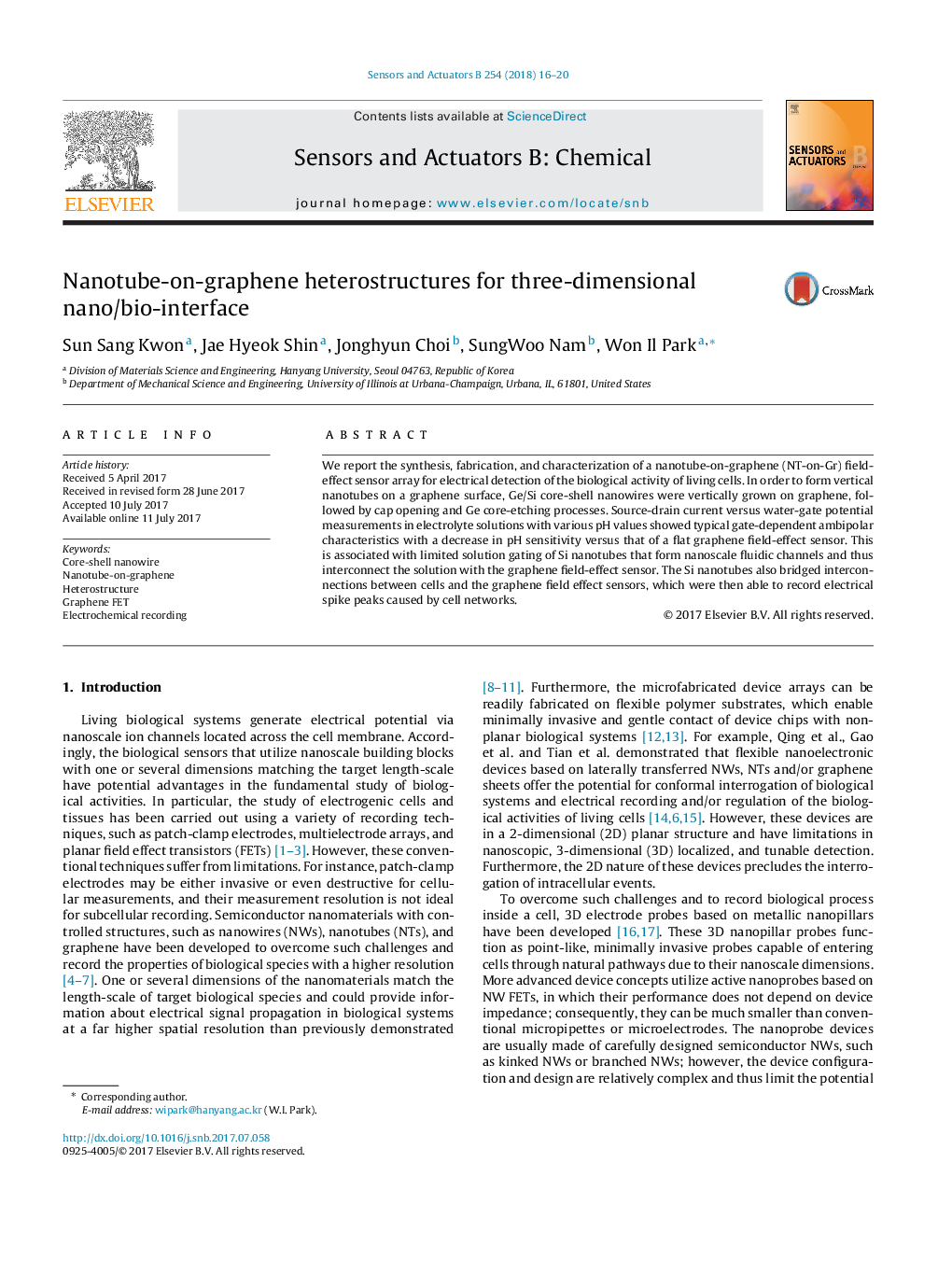| Article ID | Journal | Published Year | Pages | File Type |
|---|---|---|---|---|
| 5008645 | Sensors and Actuators B: Chemical | 2018 | 5 Pages |
â¢The nanotube-on-graphene heterostructure devices were fabricated for sensor application.â¢Investigate the ability to record cellular electrical activity using nanotube-on-graphene heterostructure devices.â¢Demonstrate the potential of the multiplexed electrical recording capabilities of biological sensor arrays based on vertical nanotubes and planar graphene FETs.
We report the synthesis, fabrication, and characterization of a nanotube-on-graphene (NT-on-Gr) field-effect sensor array for electrical detection of the biological activity of living cells. In order to form vertical nanotubes on a graphene surface, Ge/Si core-shell nanowires were vertically grown on graphene, followed by cap opening and Ge core-etching processes. Source-drain current versus water-gate potential measurements in electrolyte solutions with various pH values showed typical gate-dependent ambipolar characteristics with a decrease in pH sensitivity versus that of a flat graphene field-effect sensor. This is associated with limited solution gating of Si nanotubes that form nanoscale fluidic channels and thus interconnect the solution with the graphene field-effect sensor. The Si nanotubes also bridged interconnections between cells and the graphene field effect sensors, which were then able to record electrical spike peaks caused by cell networks.
